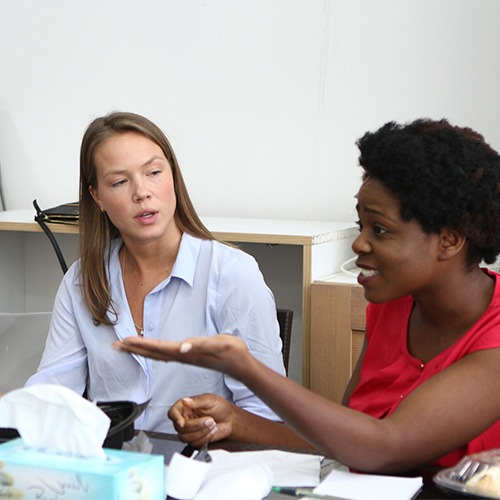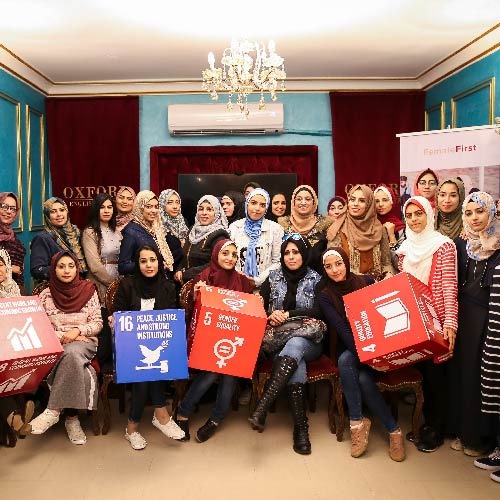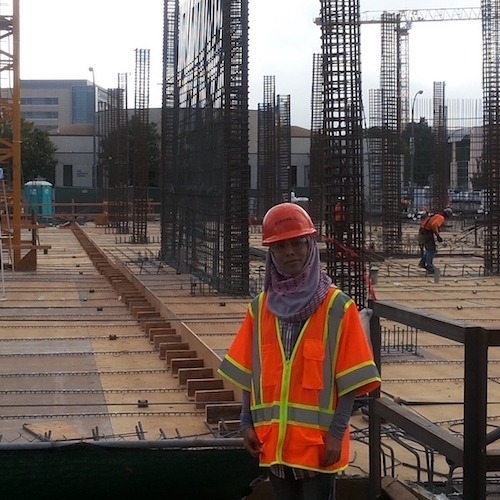Women At The Forefront Of Humanitarian Aid
The United Nations Office for the Coordination of Humanitarian Affairs (UN OCHA) wrote that “inclusive humanitarian action that meaningfully engages women and girls in humanitarian decision-making will lead to a more effective humanitarian response.” According to the Humanitarian Advisory Group, “women now comprise 75 per cent of the non-profit workforce. However, the percentage appears to be skewed in favour of men in high profile positions such as UN Humanitarian Coordinators.” Women can be powerful agents of change, and recent years has shown an increase in women in the humanitarian sector.
They’re on the frontline delivering aid; they’re engineers helping to rebuild fragile areas; and they’re leading response operations and teams. This year’s theme for International Women’s Day is Balance for Better. Gender equality in the workplace is essential for economies and communities to thrive.Our Female First initiative promotes gender balance by encouraging our recruiters, in-country teams and our clients to employ more women in humanitarian roles.
Here some of the CTG women in the field share their stories about enabling change.
Celine Julia Cheng – Risk Education Consultant (Mine Action), Iraq
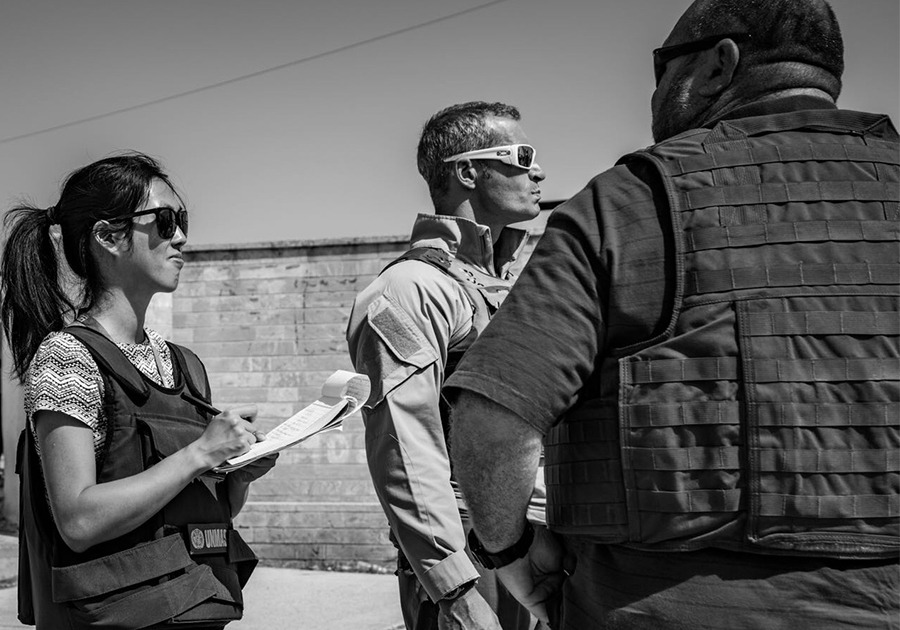
Image by George Andrew Tan
What are the challenges of being a woman in the humanitarian sector?
There have been times during my professional development when I have felt belittled and disrespected simply because I am a woman. I have also seen this happen firsthand to highly professional and qualified female colleagues. Whilst this is obviously an unpleasant experience, it is unfortunately quite common, and is what drives me to work harder and prove the value and worth of women in the humanitarian sector. I would also say that there are plenty of strong and confident male personalities working in this industry, and as women we need to ‘stand our own ground’. This isn’t always easy, especially when studies show that women are generally not as confident as men. However, it is important that as women we understand that we are as valuable as men, and we can and should be as strong and confident as our male counterparts.
Working in Humanitarian Mine Action, the sector is predominantly male and naturally a lot of my colleagues have military backgrounds. This has been intimidating and at times challenging for me. When I first started working in this sector, I remember thinking that I would never be good enough. It was only recently when I realized that there are strengths and weaknesses in all of us, and I am discovering how I can apply my strengths to better support my colleagues. I have also been fortunate enough to work with male colleagues who support and empower women. It is truly inspiring to work so closely with male gender champions.
I feel a huge responsibility to be a positive role model for women and men and promote female participation in the public and the workspace.
Has the attitude around gender equality changed since you’ve started in your role? If so, how?
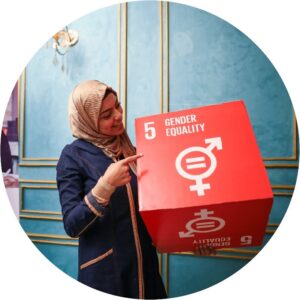 Speaking about gender inequality and abuse is becoming more common. The recent #MeToo movement is just one example. Increasing numbers of informal and formal support networks are being established for women who may have experienced sexism or sexual abuse, at any level or form. In essence, it is becoming less taboo to speak about gender inequality and abuse. On the other hand, we need to do better to investigate and take action on those who continue to abuse and exploit gender inequalities. Whistleblowing/informing with no repercussions for the whistle blower/informant also needs continued encouragement, as long as the whistleblowing is done in good faith. There continues to be a gap vis-a-vis female and male representation at management and senior roles and this needs to be urgently addressed.
Speaking about gender inequality and abuse is becoming more common. The recent #MeToo movement is just one example. Increasing numbers of informal and formal support networks are being established for women who may have experienced sexism or sexual abuse, at any level or form. In essence, it is becoming less taboo to speak about gender inequality and abuse. On the other hand, we need to do better to investigate and take action on those who continue to abuse and exploit gender inequalities. Whistleblowing/informing with no repercussions for the whistle blower/informant also needs continued encouragement, as long as the whistleblowing is done in good faith. There continues to be a gap vis-a-vis female and male representation at management and senior roles and this needs to be urgently addressed.
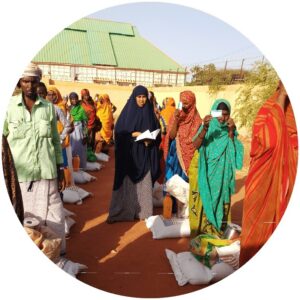 Are there any benefits that you believe being a woman brings to your role?
Are there any benefits that you believe being a woman brings to your role?
Women in Iraq are often less visible in the public space and face greater challenges to joining the workforce. I feel a huge responsibility to be a positive role model for women and men and promote female participation in the public and the workspace. Additionally, because I am able to relate to other female professionals, I try to apply a gender lens throughout all areas of my work. This means looking at opportunities to encourage female participation in mine action, where appropriate, and problem solve barriers to female participation. It is also easier for me to relate to female colleagues already in the workspace and encourage them to continue their good work.
What advice do you have for women in the humanitarian sector?
Two pieces of advice that were passed on to me (by male colleagues!). The first was given to me during a performance appraisal, when I was told to ‘develop self-confidence and stop worrying so much about making mistakes and letting people down. Everyone else has their own problems to worry about and are not in a position to be judging you!’.
The second was given to me after I had committed what seemed like a terrible mistake at the time. I had to admit to someone much more senior to me what I had done. After I had ‘confessed’ and was awaiting the retribution, he simply said ‘if you don’t work, you won’t make mistakes’. Mistakes are part of the learning curve.
These pieces of advice have and will always stay with me and I want to pass the same message on to other women inspired to work in the humanitarian sector. Additionally, I want to say to women that there are definitely times of frustration working in this field, and big decisions that will change your life and relationships. However, the experiences and lessons I have gained through my professional career are invaluable, and I wouldn’t change what I have done.
What is your favourite part about your job?
I am passionate about and believe in the value of Risk Education when done correctly. However, a great part of my job is the possibility to go beyond Risk Education and address important cross-cutting issues, including gender and diversity mainstreaming and capacity enhancement. There is nothing more important to me than to mentor and empower younger staff, be they male or female, when they have the right attitude and passion. I have learnt a lot from all my colleagues, past and current, older and younger. Working with so many different personalities and backgrounds has been a humbling experience. You never stop learning and discovering in this field, and that is a big factor that keeps me motivated every day.
Iman Shawwa – Director, Somalia and Yemen
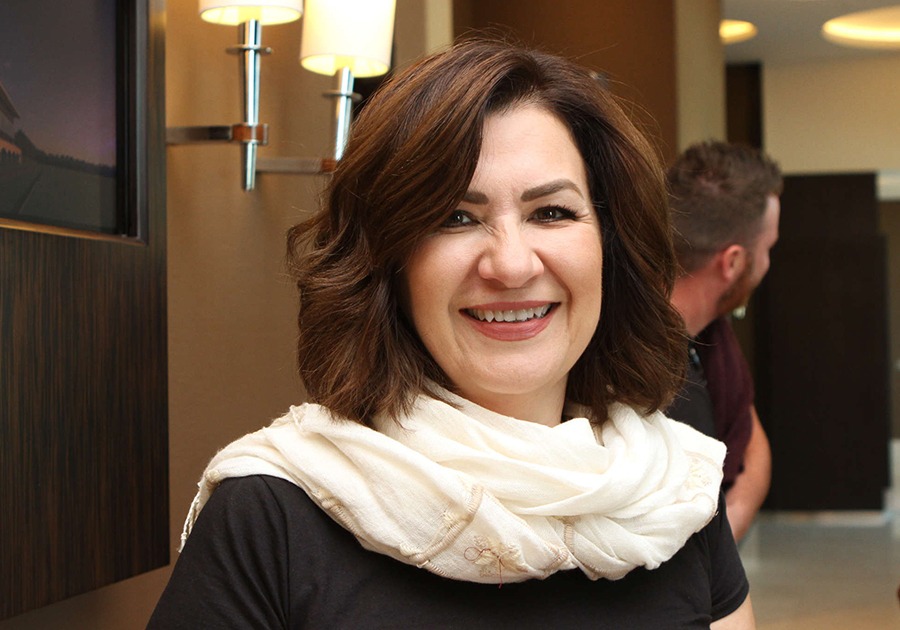
Iman is responsible for the overall strategic leadership and direction of the CTG Somalia programme, and achieving the organisational vision, mission and objectives.
Why do you think gender equality is so rife in Somalia?
Gender inequality persists in Somalia due to many factors, with culture being the biggest one. Due to gender inequality, women are facing challenges in accessing humanitarian, developmental benefits, such as education, health, employment and more. This means they don’t always have the opportunity to participate in decision making.
The lack of awareness and understanding of gender inequality and its impact on society is evident when you look at the cultural complexity of Somalia. Gender equality initiatives are seen to be ‘forced on society’ by the international organizations, which creates resistance within the community. Women who fight for women’s rights and aspire to have careers are seen as the ones that act against the culture and religion in the eyes of men.
Being a mother has also trained me to be a good caretaker and know how to deal with crises situations at home with compassion and patience.
Has gender equality changed since you’ve started in your role?
I’d like to think so. One of my major goals is to empower women, whether they are directly working for CTG or beneficiaries. I have an open door policy to all, male and female alike; listening to both sides help me tackle challenges, as ‘one hand does not clap’. I believe engaging men in empowering women in the humanitarian sector is a crucial element to achieving equality.
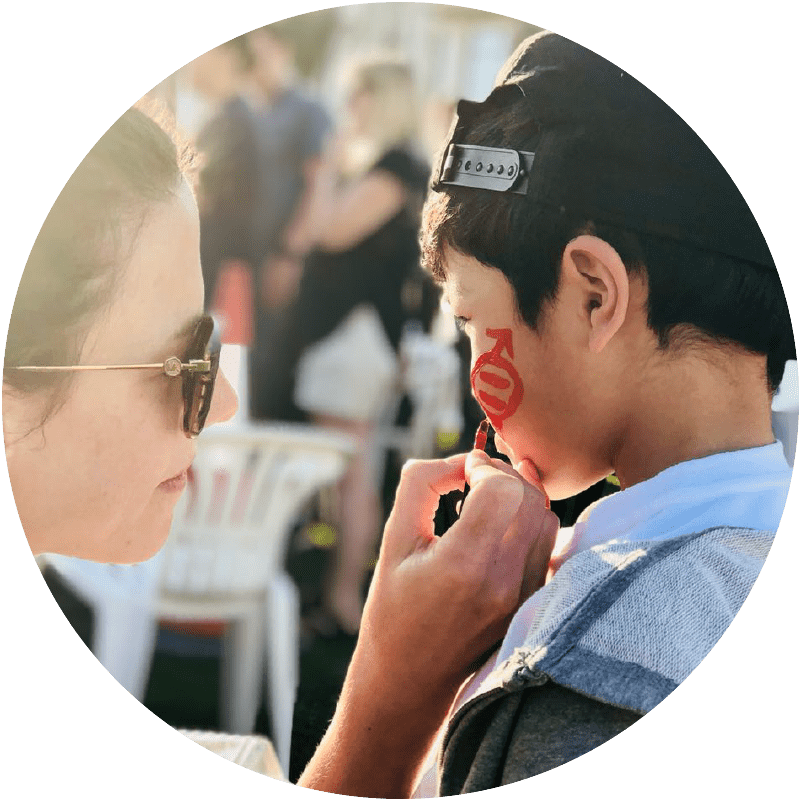 What do you think are the benefits/positives being a woman brings to your role?
What do you think are the benefits/positives being a woman brings to your role?
Being a woman in a leadership role allows me to augment my personal, sensitive, and intuitive side when dealing with humanitarian challenges. My ability to understand the complexity of our working environment helps me to create and empower a well-rounded team. I use my interpersonal skills to deal with issues logically, but also emotionally. Being a mother has also trained me to be a good caretaker and know how to deal with crisis situations at home with compassion and patience. I bring these qualities to my workplace.
What do you think it takes to be in a leadership role in the humanitarian sector?
Working in the humanitarian industry is challenging, one has to be available 24/7, responsive, and flexible. You need to be able to work in a team. Empowering my team allows us to achieve goals together. An inclusive, communicated approach is my guiding principle, I make sure everyone is well informed, educated, and at the same time I listen to others to ensure clarity. You need to be empathetic and value all relationships. It’s important to equally engage women and men at all levels.
Yes, I am a leader, but this does not mean I am leading on my own. The aspiration of my team and their commitment makes me the leader I am today. When a team member needs my support, I am right there working hand in hand with her/him to help them develop their skills and guide them through any challenges.
What is your favourite part about your job?
I love my job, and the best part is that I am learning every day and I have the opportunity to teach every day!
With more and more women making strides in humanitarian aid, the world is starting to adapt to the shifting landscape of humanitarian work. If you want to know how the UN is improving humanitarian response around the world, check out the Gender Handbook for Humanitarian Action. The handbook provides “guidance to frontline humanitarian workers on how to integrate gender equality and the empowerment of women and girls throughout the humanitarian action cycle.”
If you are interested in working for CTG, check out our vacancies. Alternatively, check out our Stories From The Field to see how both men and women are making an impact in the humanitarian sector.

